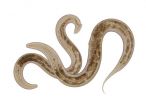The extensive public catalogue of the genetic diversity in Ethiopian and Egyptian populations developed for the project also now provides a valuable, freely available, reference panel for future medical and anthropological studies in these areas.
Two geographically plausible routes have been proposed for humans to emerge from Africa: through the current Egypt and Sinai (Northern Route), or through Ethiopia, the Bab el Mandeb strait and the Arabian Peninsula (Southern Route). Some lines of evidence have previously favoured one, some the other.
"The most exciting consequence of our results is that we draw back the veil that has been hiding an episode in the history of all Eurasians, improving the understanding of billions of people of their evolutionary history," says Dr Luca Pagani, first author from the Wellcome Trust Sanger Institute and University of Cambridge. "It is exciting that, in our genomic era, the DNA of living people allows us to explore and understand events as ancient as 60,000 years ago."
The team produced whole-genome sequences from 225 people from modern Egypt and Ethiopia. In previous studies, they and others have shown that these modern populations have been subject to gene flow from West Asian populations, so they excluded the Eurasian contribution to the genomes of the modern African people.
The remaining masked genomic regions from Egyptian samples were more similar to non-African samples and present in higher frequencies outside Africa than the masked Ethiopian genomic regions, pointing to Egypt as the more likely gateway in the exodus to the rest of the world.
The team also used high-quality genomes to estimate the time that the populations split from one another: people outside Africa split from the Egyptian genomes more recently than from the Ethiopians (55,000 as opposed to 65, 000 years ago), supporting the idea that Egypt was last stop on the route out of Africa.
"While our results do not address controversies about the timing and possible complexities of the expansion out of Africa, they paint a clear picture in which the main migration out of Africa followed a Northern, rather than a Southern route," says Dr Toomas Kivisild, a senior author from the Department of Archaeology and Anthropology, University of Cambridge.
The Northern Route as the preferential direction taken out of Africa is in better agreement with the known genetic mixture of all non-Africans with Neanderthals, who were present in the Levant at the time, and with the recent discovery of early modern human fossils in Israel (close to the Northern Route) dating to around 55,000 years ago.
"This important study still leaves questions to answer," says Dr Chris Tyler-Smith, a senior author from the Wellcome Trust Sanger Institute. "For example, did other migrations also leave Africa around this time, but leave no trace in present-day genomes? To answer this, we need ancient genomes from populations along the possible routes. Similarly, by adding present-day genomes from Oceania, we can discover whether or not there was a separate, perhaps Southern, migration to these regions.
"Our approach shows how it is possible to use the latest genomic data and tools to answer these intriguing questions of our human origins and migrations."
INFORMATION:
Notes to Editors
Publication Details
Pagani L et al. (2015) Tracing the route of modern humans out of Africa using 225 human genome sequences from Ethiopians and Egyptians. American Journal of Human Genetics. http://dx.doi.org/10.1016/j.ajhg.2015.04.019
Funding
This research was funded by the Wellcome Trust (Grant No. 098051), by an ERC Starting Investigator grant (Grant No. FP7 - 261213) and by an ERC Advanced grant (Grant No. FP7-295733).
Participating Centres
The Wellcome Trust Sanger Institute, UK
Department of Archaeology and Anthropology, University of Cambridge, UK
Department of Biological, Geological and Environmental Sciences, University of Bologna; Italy
Department of Genetics, University of Cambridge, UK
The Lebanese American University, Beirut, Lebanon
Department of Genetics, Evolution & Environment, University College, London, UK
University of Addis Ababa, and Center of Human Genetic Diversity, Ethiopia
Henry Stewart Group, London UK
The mission of the University of Cambridge is to contribute to society through the pursuit of education, learning and research at the highest international levels of excellence. To date, 90 affiliates of the University have won the Nobel Prize. Founded in 1209, the University comprises 31 autonomous Colleges, which admit undergraduates and provide small-group tuition, and 150 departments, faculties and institutions. Cambridge is a global university. Its 19,000 student body includes 3,700 international students from 120 countries. Cambridge researchers collaborate with colleagues worldwide, and the University has established larger-scale partnerships in Asia, Africa and America. The University sits at the heart of one of the world's largest technology clusters. The 'Cambridge Phenomenon' has created 1,500 hi-tech companies, 12 of them valued at over US$1 billion and two at over US$10 billion. Cambridge promotes the interface between academia and business, and has a global reputation for innovation.
http://www.cam.ac.uk/
The Wellcome Trust Sanger Institute is one of the world's leading genome centres. Through its ability to conduct research at scale, it is able to engage in bold and long-term exploratory projects that are designed to influence and empower medical science globally. Institute research findings, generated through its own research programmes and through its leading role in international consortia, are being used to develop new diagnostics and treatments for human disease.
http://www.sanger.ac.uk
The Wellcome Trust is a global charitable foundation dedicated to achieving extraordinary improvements in human and animal health. We support the brightest minds in biomedical research and the medical humanities. Our breadth of support includes public engagement, education and the application of research to improve health. We are independent of both political and commercial interests.
http://www.wellcome.ac.uk
Contact details
Don Powell Media Manager
Wellcome Trust Sanger Institute
Hinxton, Cambridge, CB10 1SA, UK
Tel +44 (0)1223 496 928
Mobile +44 (0)7753 7753 97
Email press.office@sanger.ac.uk
End of Notes to Editors


